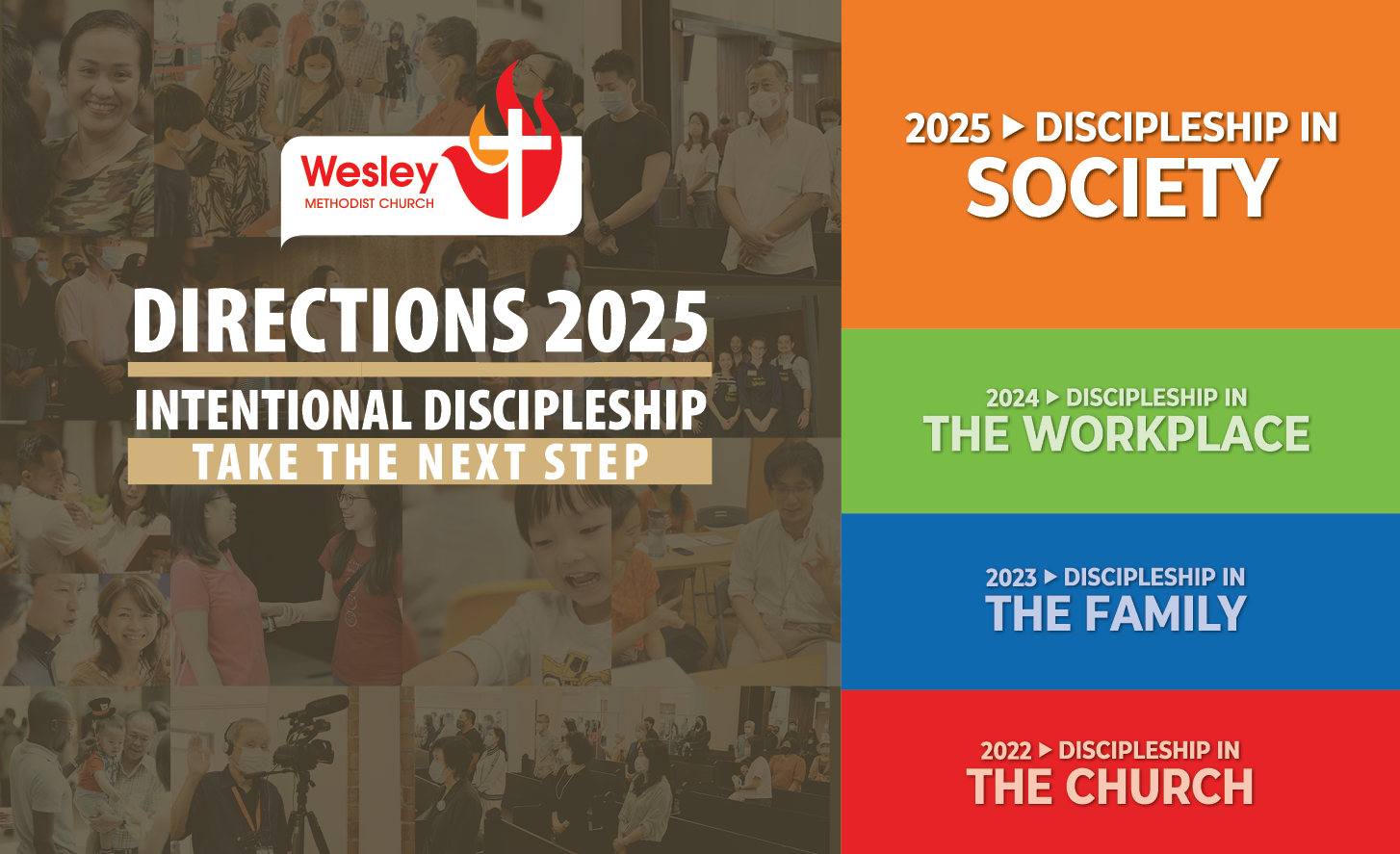“What is a Christian? The richest answer I know is that a Christian is one who has God as Father… If you want to judge how well a person understands Christianity, find out how much he makes of the thought of being God’s child, and having God as his Father. If this is not the thought that prompts and controls his worship and prayers and his whole outlook on life, it means that he does not understand Christianity very well at all.” – J.I. Packer, Knowing God
It has occasionally been said that when Jesus called God “My Father,” it was a concept completely foreign to Jewish thought — that no Jewish person would have spoken with such intimacy or directness about YHWH. While this idea may highlight the radical nature of Jesus’ ministry, I believe it overstates the case.
Jesus did not invent the idea of God’s fatherhood ex nihilo (out of nothing). Rather, He deepened and personalised a theme already present in the Hebrew Scriptures. The Old Testament contains numerous glimpses of God as Father — not just metaphorically, but relationally and theologically. These glimpses form the backdrop of Jesus’ own understanding of God as his Father.
With that in mind, I would like to suggest three key aspects of God’s fatherhood rooted in the Hebrew Bible: Cosmic Creator, Covenant Community, and Compassionate Correction.

1. Cosmic Creator
God as Father — the One who gives life and sustains being.
In the following passages, what is astonishing is that God’s fatherhood is integrally connected to Him as creator. Even though He is the origin of all life and wholly other, He is also intimately involved with his people. Take for example,
Isaiah 64:8 – “Yet, O Lord, you are our Father; we are the clay, and you are our potter; we are all the work of your hand.”
The words, “the work of your hand” harkens back to Psalm 8, where the Psalmist confesses his amazement that God would regard human beings when the works of his hands include the stars in the sky.
Malachi 2:10 – “Have we not all one Father? Has not one God created us?”
Deuteronomy 32:6 – “Is not he your father, who created you, who made you and established you?”
We must not take for granted the fact that God is the source and the sustainer of all life; even human lives, which seem so insignificant in comparison to the rest of creation. Every breath, every heartbeat — they are all grounded in His creative will.
Each morning when I drop my kids off in school, one of the things I ask them through a liturgy is “where is your nose?” After they point (hopefully to the correct body part), I will then say, “use it to breathe in the air that God has given you to breathe.” Sometimes, if I take a moment to ponder that, it reminds me of the profound truth that I am not ultimately in control of my life. God must be the one who sustains me, even as He sustains my kids.
In other words, this must not just be theological theory — it must be a call to humility. We are completely and utterly dependent on God for our being. To call God “Father” is to acknowledge that we are not self-made, and that all of life is gift, not entitlement.

2. Covenant Community
God as Father — forming a people, not just individuals.
The Hebrew Bible also presents God’s fatherhood corporately. God doesn’t simply adopt individuals; He claims a people — Israel — as His “firstborn son”.
Exodus 4:22 – “Then you shall say to Pharaoh, ‘Thus says the Lord: Israel is my firstborn son.’”
And so, God’s fatherhood is also deeply connected to the covenant He makes with His chosen people. People – a word in the plural form. In other words, the idea of God as a personal Father is a foreign concept when it comes to the Hebrew Scriptures. Picking up Malachi’s words once again, the rhetorical question He poses deals with the Israelites’ inability to do right by one another.
Malachi 2:10 – “Have we not all one father? Has not one God created us?
Why then are we faithless to one another, profaning the covenant of our ancestors?”
He connects God’s fatherhood to how we treat one another. If we all share one Father, then how we relate to each other must reflect that shared family bond. The Hebrew word behind “faithless” here actually means “to deal treacherously with”; it is essentially the opposite of being righteous. Thus, the one who fails to act in right relationship towards their brother or sister is also guilty of denying God as their Father.
Isaiah ramps up the importance of God’s fatherhood to our relationship with one another even further.
Isaiah 63:16 – “For you are our father,
though Abraham does not know us
and Israel does not acknowledge us;
you, O Lord, are our father;
our Redeemer from of old is your name.”
Here, the prophet proclaims something powerful: Israel’s deepest belonging is not even to their ancestors (Abraham and Jacob), but to God Himself. And so, God’s fatherhood is not only a sharp indictment against us when we do not treat each other rightly but is also the fundamental basis for our unity. Our solidarity does not primarily stand with our ethnic group, denomination, small group or church – it must stand with God Himself.
And of course, this corporate understanding of God as our Father is certainly present in the prayer Jesus taught His disciples to pray:
“Our Father in heaven…”
He doesn’t say “my Father” here. In fact, there is no mention of the pronoun “I” in the Lord’s Prayer. He teaches us to pray as a people, not just as individuals. The family of God prays together, lives together, forgives together — because we share one Father.

3. Compassionate Correction
God as Father — who disciplines in love and invites us home.
The third deep connection with God’s fatherhood in the Hebrew Scriptures is that of a Father who is grieved by His children’s rebellion and yet longs for them to be restored to Him.
Deuteronomy 32:6 – “Do you thus repay the Lord,
O foolish and senseless people?
Is not he your father, who created you,
who made you and established you?”
Jeremiah 3:19 – “I thought
how I would set you among my children,
and give you a pleasant land,
the most beautiful heritage of all the nations.
And I thought you would call me, ‘My Father’,
and would not turn from following me.”
These verses capture Israel’s belligerence not just in the wilderness – immediately after God had rescued them from Egypt – but their rejection of Him that led to the Babylonian exile. Despite their repeated failures in remaining faithful to Him, as their father, He still calls them back again and again.
God’s correction is not rooted in control but in compassion. Like a good parent, He disciplines to bring His children back — not out of anger, but out of deep, covenantal love.
Hosea 11 – 1 When Israel was a child, I loved him,
and out of Egypt I called my son.
2 The more I called them,
the more they went from me;
they kept sacrificing to the Baals,
and offering incense to idols.
3 Yet it was I who taught Ephraim to walk,
I took them up in my arms;
but they did not know that I healed them.
4 I led them with cords of human kindness,
with bands of love.
I was to them like those
who lift infants to their cheeks.
I bent down to them and fed them.
Here in Hosea 11, God speaks of teaching Israel to walk, taking them in His arms, healing them. And even when they rebel, He asks:
“How can I give you up, O Ephraim?” (verse 8)
God’s fatherly correction is always an invitation home.
The Hebrew Bible gives us a rich, multilayered understanding of God as Father:
- Cosmic Creator — the one who gives life and sustains us.
- Covenant Community — the one who binds us to each other in love.
- Compassionate Correction — the one who always leads us back when we stray.
Jesus didn’t discard this legacy. When He taught us to pray “Our Father”, He was drawing deeply from the well of Israel’s Scripture — and inviting us into a relationship that is as ancient as creation and as fresh as a child crying, “Abba”.
(Images: Pixabay.com)
Read also: Looking Up in Humble Repentance, Reaching Out in His Grace and Providence







